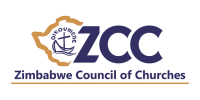Church, Peace &
Just Societies

About CPJS
This strategic pillar will include the following components: National Healing and Reconciliation, National Dialogue, Civic Education, Economic and Gender Justice and Constitutional Democracy. The agenda of a comprehensive and all-inclusive national dialogue is what stands between the current socio-economic and political challenges and the vision of a prosperous nation where all Zimbabweans can live in peace, unity and economic prosperity. The church continues to compliment government efforts in facilitating devolution processes. The new strategy clearly positions ZCC’s work in dialogue and facilitation as the next few years will be volatile politically. The focus in the past has been on political players, but there is a need to drive the agenda of a common understanding of the national problem and solution from the grassroots. Active citizenship and the promotion of good governance will remain an outstanding agenda which should be underpinned by occasional contextual theological reflection. As a church institution, ZCC has a moral high ground to facilitate political, social and economic dialogue among key players and put pressure on the current government to reform and respect and uphold human rights in Zimbabwe as well as deliver a functional economy that delivers for all.
- ECONOMIC JUSTICE
- SOCIAL COHESION
- ACTIVE CITIZENSHIP & GOOD GOVERNANCE
The Zimbabwe Council of Churches (ZCC), through its member churches and as a member of the Fight Inequality Alliance, is mobilising and raising awareness on growing and pervasive inequalities during the Global Week of Action Against Inequality, beginning 18th until the 25th of January 2020. The purpose of this global campaign is to raise awareness on various forms of inequality in our society, to challenge the power relations that shape them and advocate for policies to reduce all forms of inequality.
In this strategic priority the program seeks to address:
- The generally high level of unemployment, the level at which young people are unemployable.
- The sense that the current economic situation is a result of mismanagement of the nation’s natural resources as well as the lack of accountability around the whole public finance governance
- The general lack of understanding of climate change and how this affects the livelihoods and economic prospects of the citizens
In this program we seek to address:
The general apathy towards nation-building processes. Due to the long process of anticipation of improvement of life, many Zimbabweans have become fatigued and resigned to the thinking that none of the civil actions will change the situation.
The general ignorance of the opportunities that emerge from the 2013 national constitution: Even with the finalization of the new constitution in 2013, research show that many Zimbabweans remain ignorant of the constitution and its provisions for strengthening citizenship engagement.
The general lack of motivation and preparedness to vote in the upcoming elections. The elections will be taking place in the first half of 2018. This will be an election under the new Bio-metric voter registration method. Many people would have limited information about this. Young people many are not interested in voting due to past disappointment.
This program intervenes by:
Raising awareness and interest among member churches and identified communities to the need to embrace active citizenship for nation-building processes.
Working with churches, civil society and the relevant agencies of the state to raise awareness of the 2013 national constitution.
Carrying our voter education and general orientation of churches and identified communities to register and vote.


In this program we seek to address:
Soon after Zimbabwe’s independence in 1980, the nation saw a violent situation in which many lives were lost especially in Matabeleland. In subsequent decades, many of the violent conflicts escalated during the election period. There was also evidence of violent conflict at inter-personal and community levels.